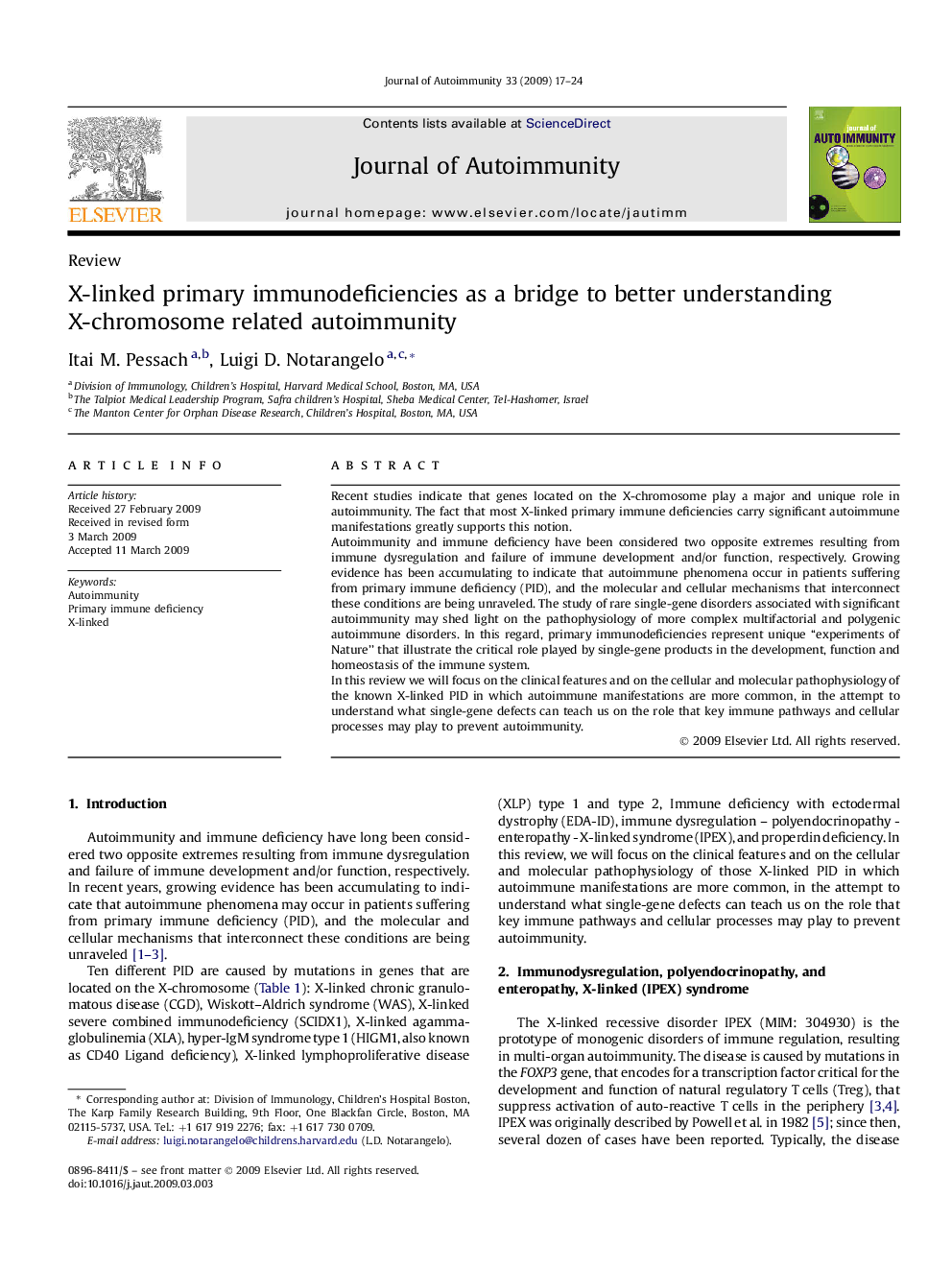| Article ID | Journal | Published Year | Pages | File Type |
|---|---|---|---|---|
| 3368103 | Journal of Autoimmunity | 2009 | 8 Pages |
Recent studies indicate that genes located on the X-chromosome play a major and unique role in autoimmunity. The fact that most X-linked primary immune deficiencies carry significant autoimmune manifestations greatly supports this notion.Autoimmunity and immune deficiency have been considered two opposite extremes resulting from immune dysregulation and failure of immune development and/or function, respectively. Growing evidence has been accumulating to indicate that autoimmune phenomena occur in patients suffering from primary immune deficiency (PID), and the molecular and cellular mechanisms that interconnect these conditions are being unraveled. The study of rare single-gene disorders associated with significant autoimmunity may shed light on the pathophysiology of more complex multifactorial and polygenic autoimmune disorders. In this regard, primary immunodeficiencies represent unique “experiments of Nature” that illustrate the critical role played by single-gene products in the development, function and homeostasis of the immune system.In this review we will focus on the clinical features and on the cellular and molecular pathophysiology of the known X-linked PID in which autoimmune manifestations are more common, in the attempt to understand what single-gene defects can teach us on the role that key immune pathways and cellular processes may play to prevent autoimmunity.
